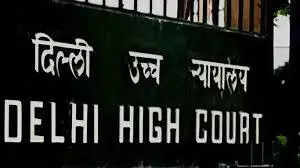
New Delhi: The Delhi High Court has highlighted the “harassment and mental trauma” that patients and their families often face while being discharged from hospitals and settling bills. The court has now called for a proper regulatory system to make the process smoother.
In an order passed on Thursday, the court asked the Centre, Delhi government, and relevant authorities to step in and create a policy. This came while hearing the case of a lawyer who accused Max Hospital in Saket of offences like cheating, wrongful confinement, and breach of trust.
While the court cleared the hospital of any criminal wrongdoing, it did raise concerns about how patients are often troubled over pending payments.
“Such incidents of alleged harassment in settling final bills are not untold stories but are frequently suffered by patients,” Justice Neena Bansal Krishna said. She added, “The trauma of an ailment is often compounded by delays in discharge caused by insurance approvals, pushing families into distress.”
The judge said that although the lawyer’s complaint was understandable, the situation didn’t amount to a criminal offence. “Much angst has been expressed at many forums about the delay in insurance approvals. This may be a ground for seeking compensation for mental harassment but not for criminal prosecution,” she stated.
The case was about a lawyer who had cysticercosis in his right hand. He underwent surgery at Max Hospital and had a cashless insurance plan from Max Bupa, which had Max Hospital on its network. However, because the insurance pre-authorisation was limited, the hospital asked him to pay the remaining balance at the time of admission. He later said this was fraud and wrongful detention.
The high court supported the lower court’s decision, saying the hospital had no dishonest intentions. “Though it may seem onerous, requiring a patient to deposit the balance when pre-authorisation is limited cannot be termed extraction of money or dishonest conduct. The patient was informed in advance.”
The court also noted that the patient’s insurance covered a standard room, but he chose a deluxe one. The extra charge of Rs 57,332 was taken from his deposit.
In conclusion, the court stressed the urgent need for rules and regulations to avoid such issues in future. “Despite recommendations from various courts and the NHRC’s proposed Charter of Patients’ Rights, no final framework has been implemented. This is an area that must be addressed jointly by the Centre, Delhi government, IRDA, and medical councils,” it said.

